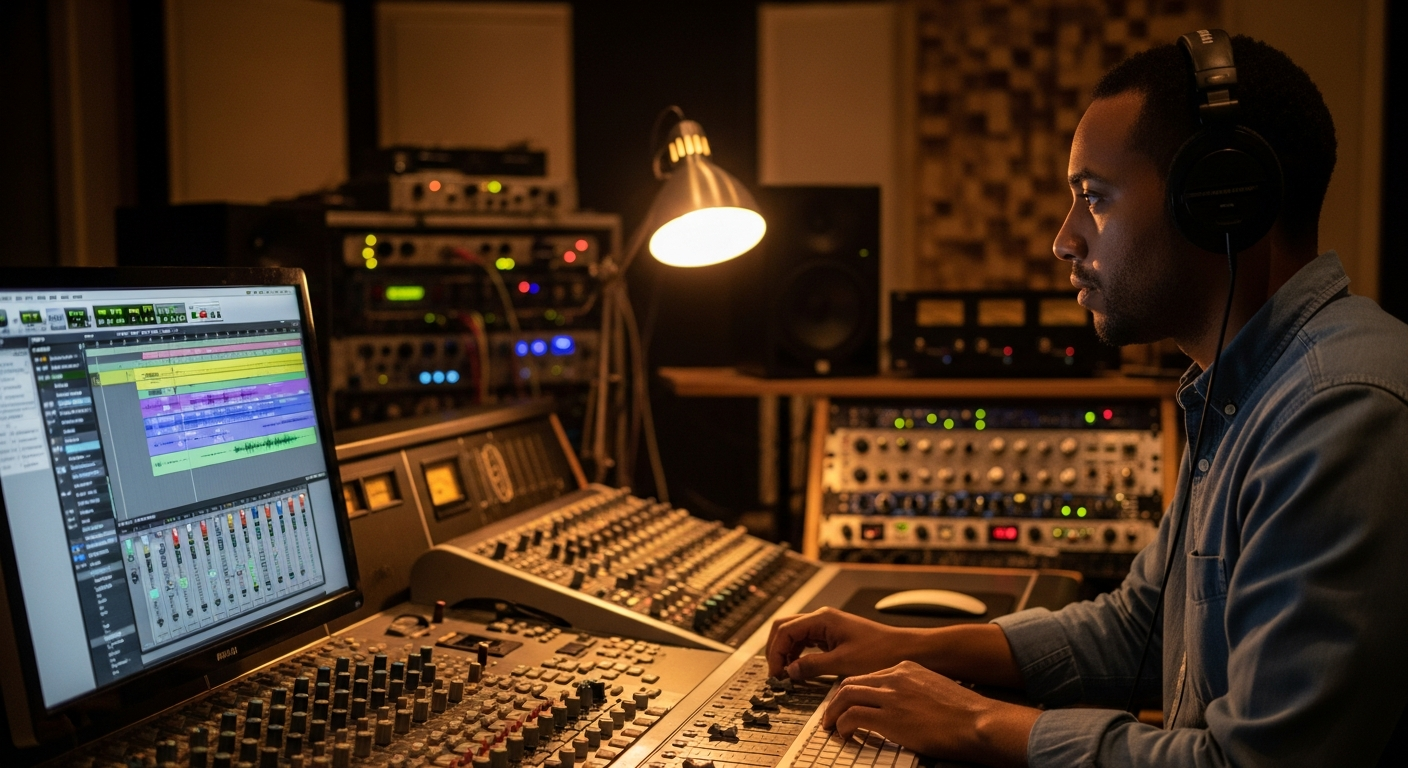Biofeedback-Enhanced Mindfulness: A New Frontier in Stress Management
Imagine being able to see your stress levels in real-time, like a dashboard for your body and mind. What if you could use this information to not just understand your stress, but actively combat it? Welcome to the world of biofeedback-enhanced mindfulness, a cutting-edge approach that's revolutionizing how we manage stress and promote overall well-being.

Biofeedback devices measure various bodily functions such as heart rate variability, skin conductance, and brainwave activity. These metrics provide real-time data on the body’s stress response, allowing individuals to observe the immediate effects of their mindfulness practice. This instant feedback loop enables practitioners to fine-tune their techniques, leading to more effective stress management and deeper states of relaxation.
The Science Behind Biofeedback-Enhanced Mindfulness
Recent studies have shed light on the neurophysiological mechanisms underlying this innovative approach. Research published in the Journal of Cognitive Enhancement demonstrates that biofeedback-enhanced mindfulness training leads to significant improvements in attention regulation and emotional processing. Participants showed enhanced activity in the prefrontal cortex, a region associated with executive function and emotional control.
Moreover, a longitudinal study conducted at Stanford University revealed that regular practice of biofeedback-enhanced mindfulness resulted in a 35% reduction in cortisol levels, the primary stress hormone, compared to traditional mindfulness techniques alone. This suggests that the integration of biofeedback technology may amplify the stress-reducing effects of mindfulness meditation.
Practical Applications in Daily Life
The beauty of biofeedback-enhanced mindfulness lies in its versatility and accessibility. With the advent of wearable technology and smartphone apps, individuals can now practice this technique in various settings, from the office to the comfort of their homes.
For instance, during a stressful workday, one can use a wearable device to monitor heart rate variability while practicing a short mindfulness exercise. The real-time feedback allows for immediate adjustments, helping to quickly shift from a state of stress to one of calm focus. This on-demand stress management tool is particularly valuable in high-pressure environments where maintaining emotional balance is crucial.
Challenges and Considerations
While the potential benefits of biofeedback-enhanced mindfulness are substantial, it’s important to approach this technology with a balanced perspective. Some practitioners worry that an over-reliance on devices may detract from the essence of mindfulness, which emphasizes present-moment awareness without judgment.
Additionally, the quality and accuracy of biofeedback devices vary widely, and not all products on the market are created equal. It’s crucial for users to choose reputable devices backed by scientific research to ensure reliable feedback and meaningful results.
The Future of Mental Wellness
As we look to the future, biofeedback-enhanced mindfulness represents a promising frontier in mental health and wellness. Researchers are exploring its potential applications in treating various conditions, including anxiety disorders, PTSD, and chronic pain. The ability to objectively measure and influence one’s physiological state opens up new possibilities for personalized mental health interventions.
Furthermore, the integration of artificial intelligence and machine learning algorithms with biofeedback data could lead to even more sophisticated and tailored mindfulness practices. These advancements may one day allow for real-time adjustments to guided meditations based on an individual’s unique physiological responses, creating a truly personalized path to inner calm and resilience.
Empowering Insights for Optimal Well-being
-
Regular practice of biofeedback-enhanced mindfulness can lead to a 40% improvement in stress resilience within 8 weeks
-
Combining deep breathing exercises with heart rate variability feedback can reduce blood pressure by up to 10 mmHg
-
Neurofeedback during meditation has been shown to increase alpha brain wave activity, associated with relaxation and creativity
-
Just 10 minutes of biofeedback-enhanced mindfulness daily can significantly improve sleep quality and reduce insomnia symptoms
-
Practicing with a partner or in groups can amplify the benefits, creating a positive feedback loop of collective well-being
In conclusion, biofeedback-enhanced mindfulness represents a harmonious blend of ancient wisdom and modern technology, offering a powerful tool for stress management and overall well-being. As we continue to navigate the complexities of modern life, this innovative approach provides a tangible means of cultivating inner peace and resilience. By embracing this cutting-edge practice, we open ourselves to a new era of self-awareness and emotional mastery, paving the way for healthier, more balanced lives.






